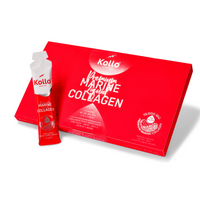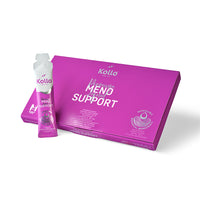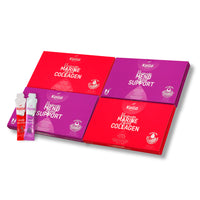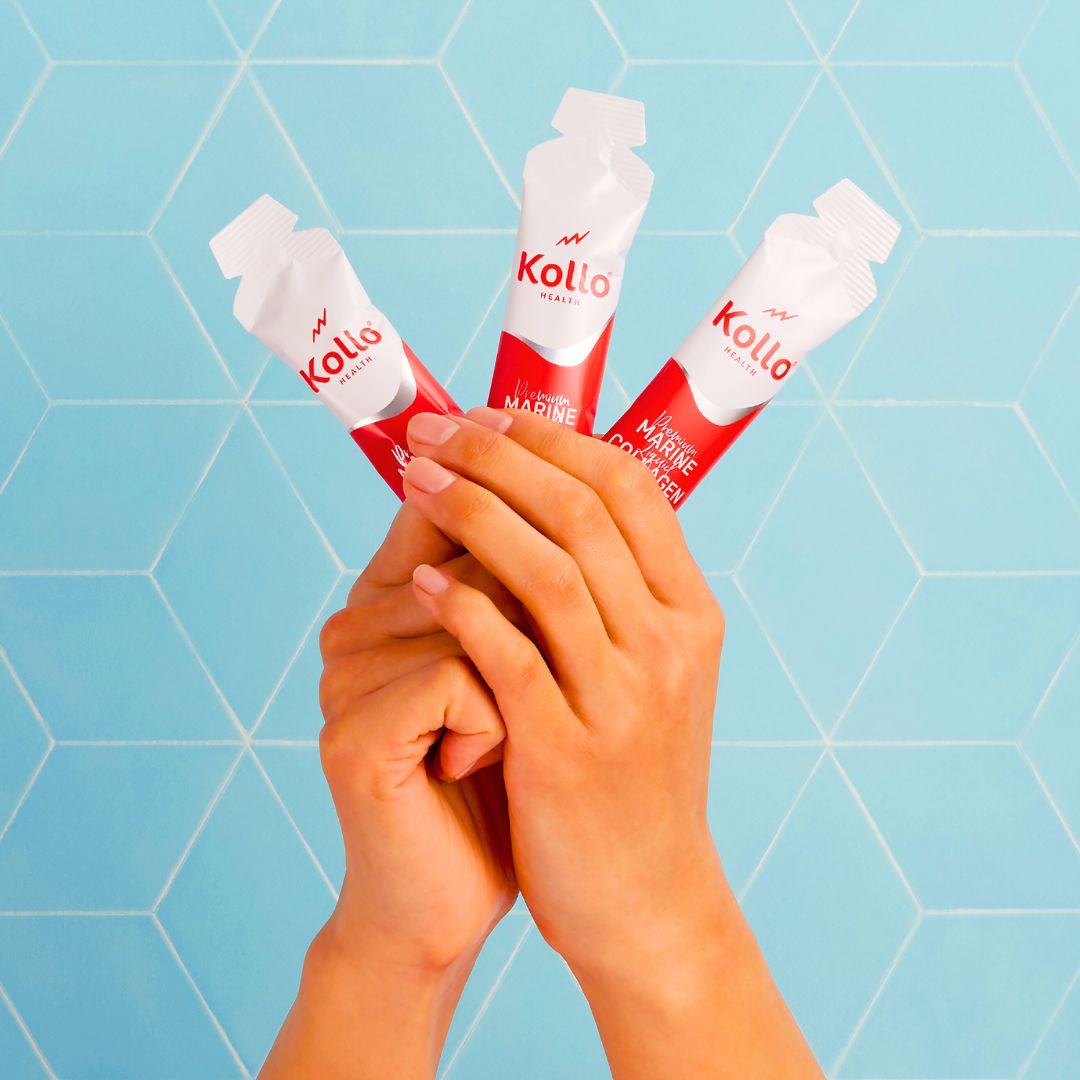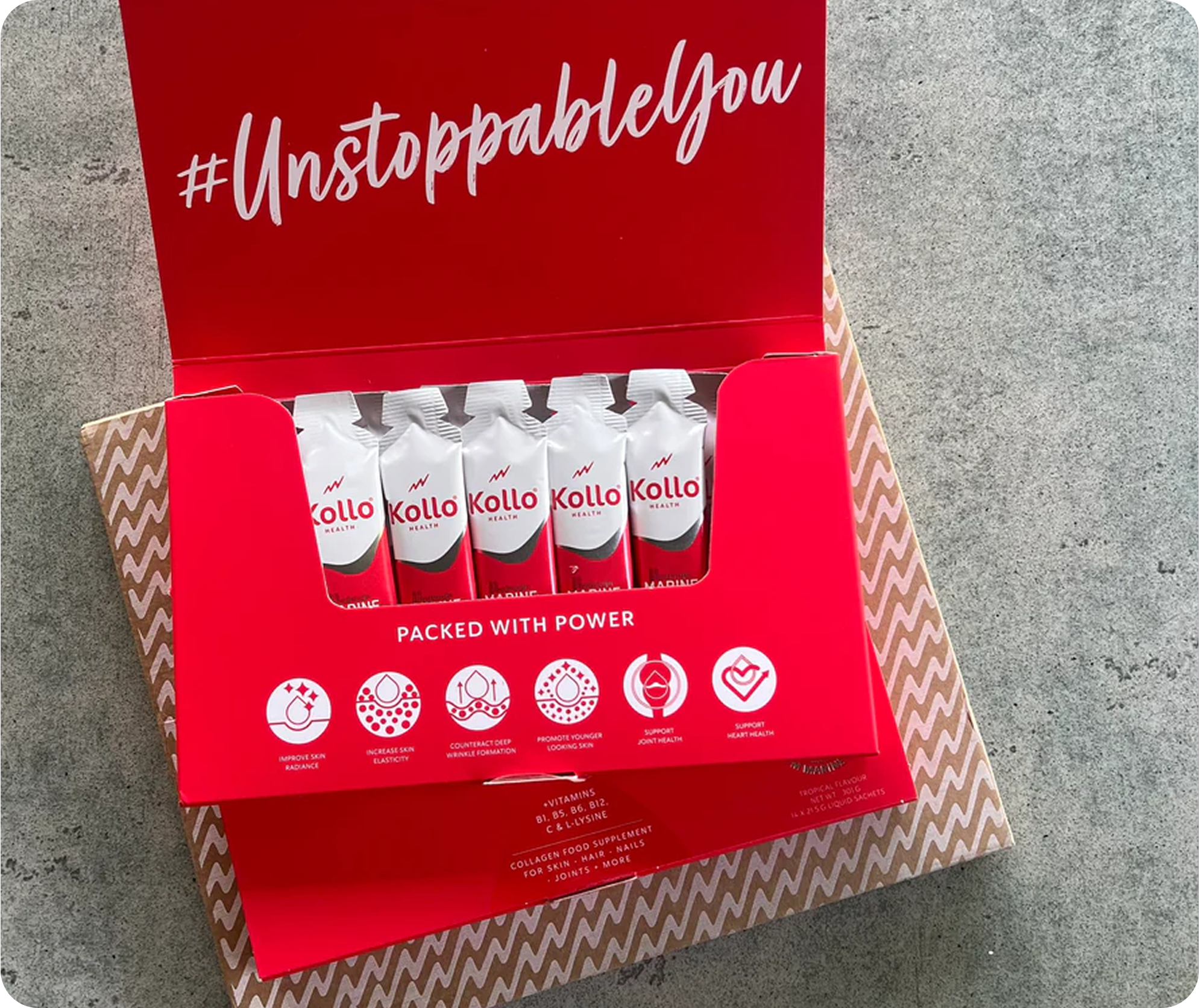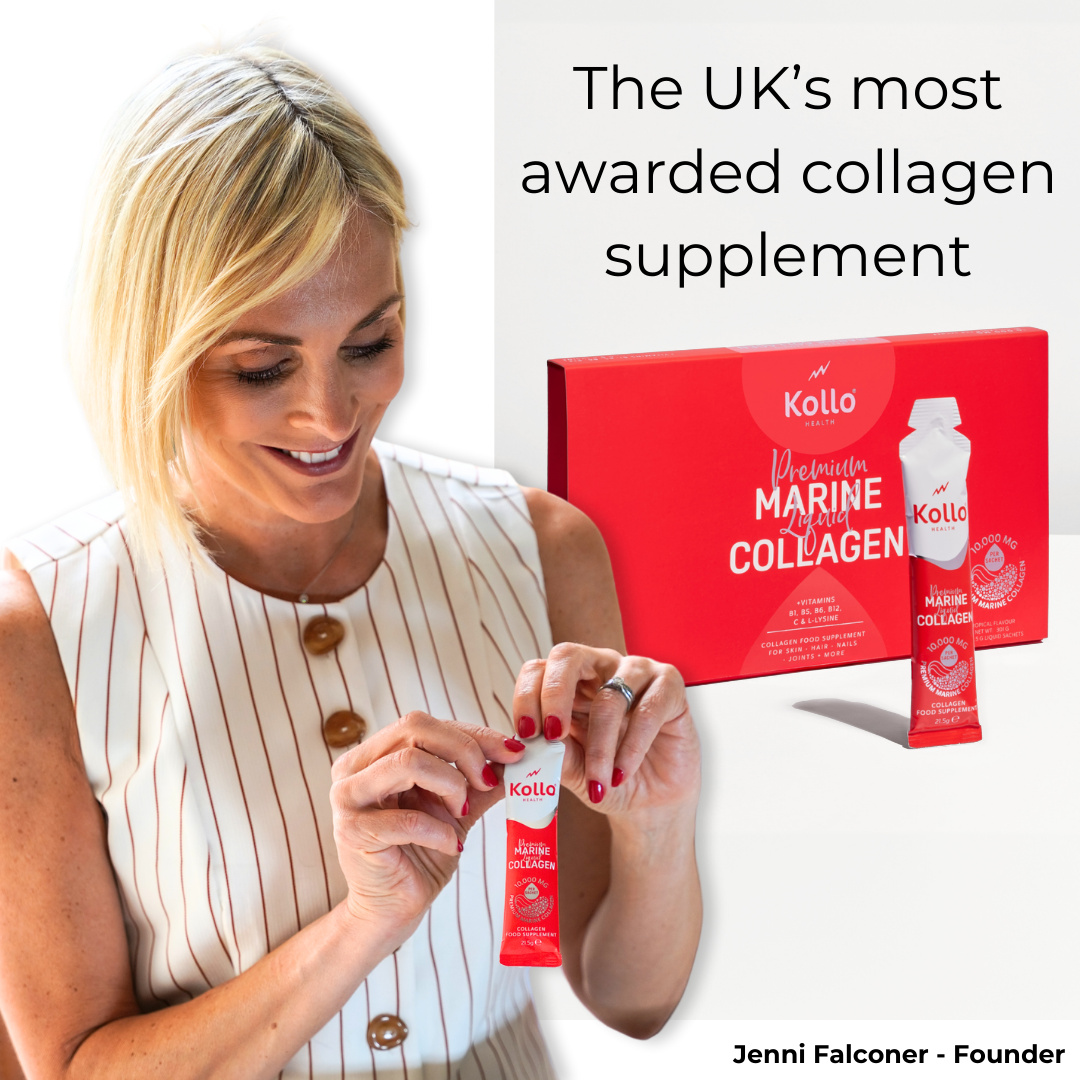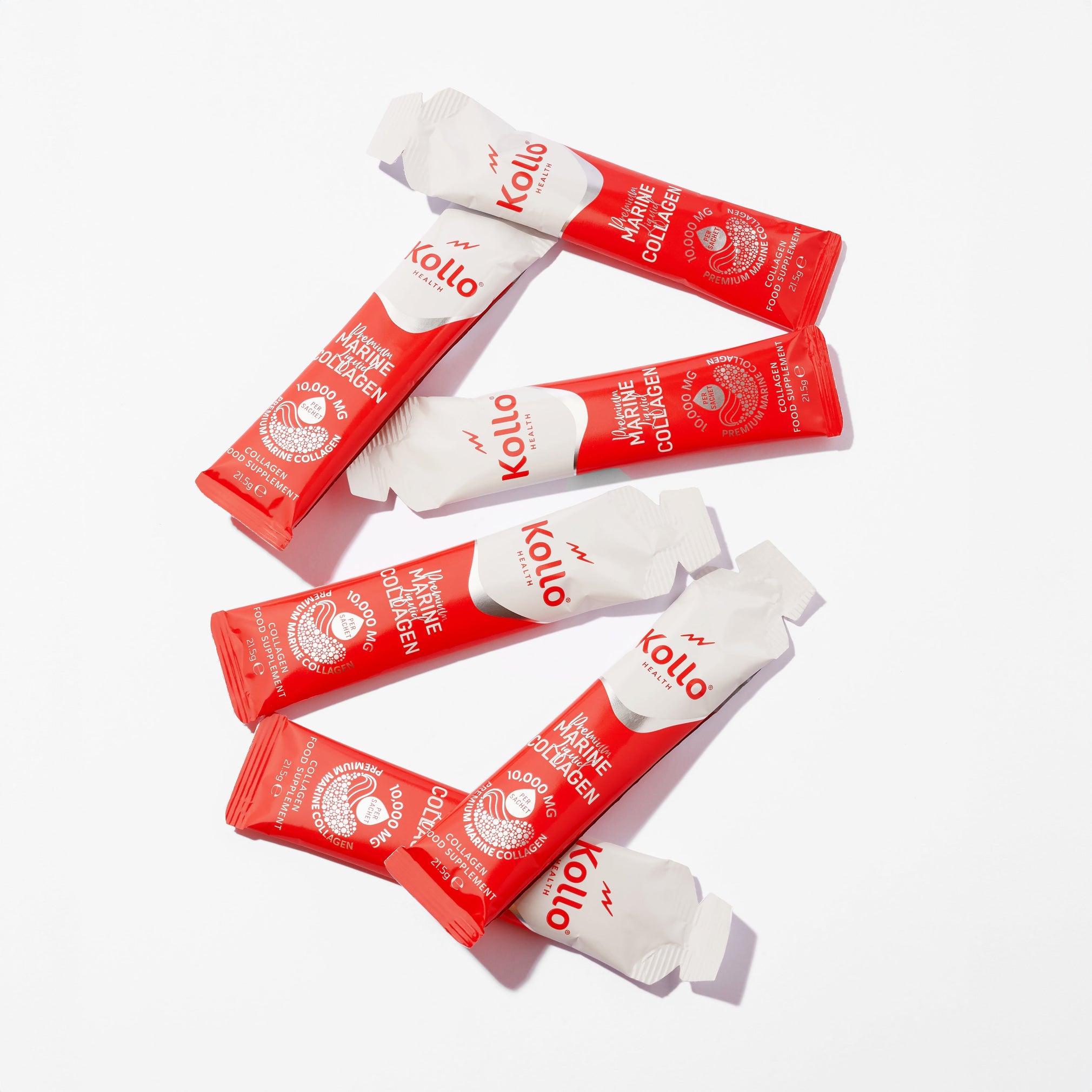Everything you need to know about collagen.

Everything you need to know about collagen.
Collagen has gained massive popularity in the health and beauty industry over the past few years and is being used to sell skincare and hair products from a huge number of brands. If you are still wondering what the buzz is all about, here is everything you need to know about collagen and marine collagen.
What is collagen?
Collagen is the most abundant protein in our bodies. It is often referred to as the glue that holds the body together, because it is found in most connective tissues, including ligaments, muscles, tendons, and the skin. It is also found in other body parts such as the teeth, corneas, and blood vessels.
Why is collagen important?
Collagen makes up one-third of the protein in your body, and it is crucial to maintaining good health. To help you understand the importance of collagen in your body, let’s look at the four main types of collagen and the roles they play in your body.
• Collagen Type I
This is the most prevalent type of collagen in your body. It accounts for 90% of your collagen and is made up of densely packed fibres. If you are keen on maintaining healthy skin, joints, hair, and nails, you must preserve your Type I collagen levels. It provides structure to the skin, preventing wrinkles and fine lines, and also promotes healthy bones.
• Collagen Type II
While Type II collagen is less prevalent than Type I, it plays a crucial role in your body. It is the main component of your cartilage and is extremely important for your skeletal system. Unlike Type I collagen, Type II is made up of more loosely packed fibres.
• Collagen Type III
Type III collagen supports the structure of your arteries, muscles, and organs.
Collagen Type IV
This type of collagen is found in the layers of your skin and is the predominant component of your basement membranes. It helps with filtration as well as cell adhesion, differentiation, and proliferation.
How can you increase collagen production?
All collagen starts as procollagen. To make procollagen, your body uses vitamin C to combine proline and glycine. Therefore, to help your body increase its collagen production, ensure that you eat foods rich in the following nutrients:
• Vitamin C: Citrus fruits such as lemons and oranges are excellent sources of vitamin C. You can also find it in bell peppers, strawberries, blackcurrants, and broccoli.
• Proline: This is found in dairy products, egg whites, mushrooms, wheat germ, cabbage, and asparagus.
• Glycine: Large amounts of glycine are found in chicken skin, gelatine, and pork skin, but you can also find it in a majority of protein-rich foods.
• Copper: Great sources of copper include: lentils, cashews, organ meats, cocoa powder, and sesame seeds.
In addition to these foods, ensure that you eat high-quality proteins to get the amino acids required to make new proteins. Dairy, seafood, meat, poultry, tofu, and legumes are excellent sources of amino acids.
What damages collagen?
While collagen naturally depletes as you age, some factors can cause your collagen levels to decrease much faster. They include:
• High sugar consumption: A high-sugar diet increases your rate of glycation, a process where sugar attaches to proteins to form advanced glycation end-products [AGES]. These products damage nearby proteins, making collagen dry and brittle. Sugar also interferes with collagen’s ability to repair itself, so minimise sugar consumption to help preserve your collagen for longer.
• Too much sun exposure: The UV rays in sunlight break down collagen more rapidly and cause a build-up of abnormal elastin. Therefore, avoid prolonged sun exposure and ensure that you wear SPF every day.
• Smoking: Smoking decreases collagen production and also damages the collagen and elastin in your skin.
What are the natural food sources of collagen?
Similar to human beings, animals also have collagen in their connective tissues. Therefore, the best natural food sources for collagen are found in bone broth, which is made by boiling bones. Fish, chicken, and pork skin are also excellent sources of collagen.
What are the alternative sources of collagen?
One of the other ways you can boost your collagen levels is by taking collagen supplements. There are two main types of collagen supplements; hydrolysed collagen and gelatine. Hydrolysed collagen is a more processed form of collagen, and this makes it easier for your body to digest and use it.
When buying collagen supplements, you will also realise that they come from different sources. Bovine collagen is derived from cows, while marine collagen is derived from fish. Marine collagen is rich in Type I collagen and is therefore considered superior in raising collagen levels. If you want to improve your skin, hair, nails, and bone quality, consider getting marine collagen.
While there aren’t many studies on collagen supplements, the few that exist show that these supplements can help improve your skin’s elasticity, increase muscle mass and strength, and protect from arthritis development and progression.
Do collagen supplements have side effects?
Fortunately, collagen supplements have no proven side effects. You might experience a lingering unpleasant taste and mild heartburn when taking gelatine, but that’s about it. That said, carefully read the ingredients list before buying supplements to avoid any allergic reactions.
How to choose the right collagen supplement
When looking for the best collagen supplements, you want to make sure you are looking for something with clinically proven, real results. With over 700 5 star reviews (and counting), Kollo is a name you can trust. Formulated with 10,000mg of marine collagen, Kollo helps to refresh and plump skin, minimise the look of wrinkles, rejuvenate dull skin, and much more.
Ready to begin your journey to a healthier you with collagen?
For more information visit Kollohealth.com
